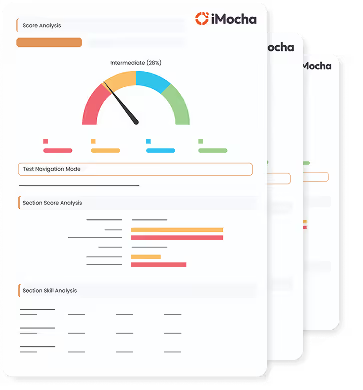


Choose easy, medium, or tricky questions from our skill libraries to assess candidates of different experience levels.
Choose easy, medium, or tricky questions from our skill libraries to assess candidates of different experience levels.

Choose easy, medium, or tricky questions from our skill libraries to assess candidates of different experience levels.

Choose easy, medium, or tricky questions from our skill libraries to assess candidates of different experience levels.
This a comprehensive PDF report, which you can instantly download and share with your hiring team or candidates for seamless collaboration.
Download Sample Report



Our coding skill test is the most effective tech assessment to gauge a candidate’s knowledge of C Programming concepts. This online C Coding test enables hiring managers and recruiters to hire job-fit candidates for C Programmer positions. The online C Coding test can reduce hiring costs by 40% and helps in building winning tech teams.
.avif)




%20(1).webp)
C Programming is a general-purpose programming language which supports structured programming. It is widely used for system and application software. The various C Programming elements and concepts, such as functions, loops, pointers, arrays should be used effectively by a programmer to solve real-world problems.
The C Programming Test is designed mainly to assess candidates to determine performance in coding evaluation, knowledge of various functions, and related codes. In this test, the programmer has to write the code by using C coding language.

Using powerful reporting, a detailed analysis of test results facilitates better decisions and predict a candidate's/employee's success. The test enables employers and recruiters to identify potential hires by evaluating working skills and job readiness. For this reason, emphasis is laid upon evaluating the knowledge of applied skills gained through real work experience, rather than theoretical knowledge. The test may contain AI-LogicBox (Pseudo coding platform), Coding Simulators, etc.
Check out this blog to gain insights into practical methods for assessing developer coding skills during interviews.







.webp)
.webp)
.webp)
.webp)